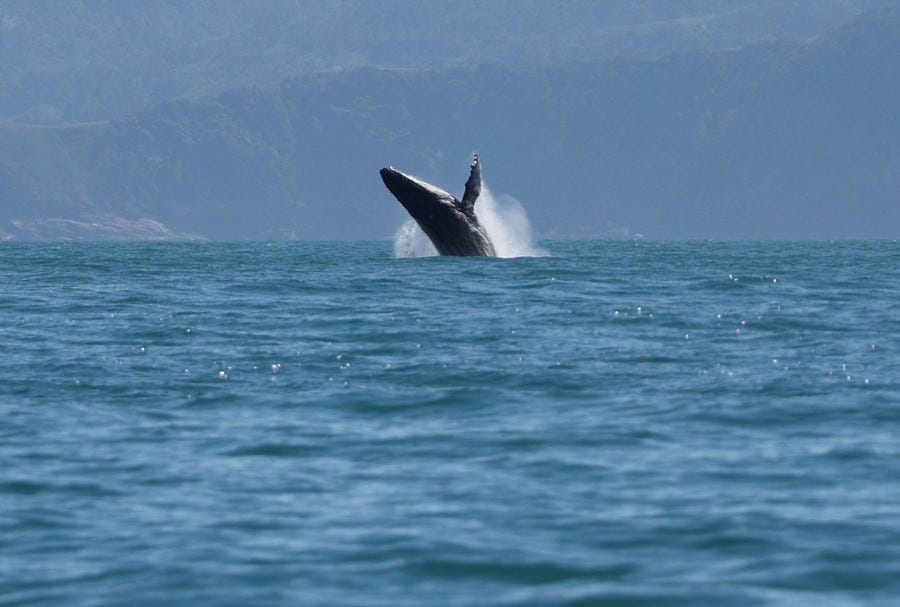The Top 5: Wikipedia, streaming services, UPS and mnemonics
Plus, register now for CCPL's Summit in November!

Welcome to your weekly edition of the Top 5 articles we’ve read this week. Each week, we read dozens of articles in the hope we find essays and reporting that speak to big ideas, trends, future looks, and incredible human stories. We hope you enjoy our list, and do always let us know if you have a suggestion or a recommendation! Please also consider becoming a paid subscriber if this is one of those newsletters you open up all the time or look forward to each week. We couldn’t do this work without our paying subscribers!
Also, if you haven’t already done so, please pre-order Michael’s book, “The Spirit of Our Politics: Spiritual Formation and the Renovation of Public Life.” Pre-orders are so helpful!
The Top 5 articles for your week:
“In the streaming wars, it feels like everybody’s losing” (Washington Post)
Because Taylor Telford finds, “Historically, the arrival of technological innovations such as television and VCRs have triggered massive changes in Hollywood. It wasn’t so long ago that streaming was the darling of the movie and TV industry, offering an avenue for more diverse talent and a new way to reach audiences. But now, as a growing number of streaming services fight to capture a finite number of subscribers, the industry has become dominated by uncertainty, shrinking opportunity and content overload.”
“‘A certain danger lurks there’: how the inventor of the first chatbot turned against AI” (The Guardian)
Because Ben Tarnoff examines the perspective of Joseph Weizenbaum, the invetor of the first chatbot: “Today, the view that artificial intelligence poses some kind of threat is no longer a minority position among those working on it. There are different opinions on which risks we should be most worried about, but many prominent researchers, from Timnit Gebru to Geoffrey Hinton—both ex-Google computer scientists—share the basic view that the technology can be toxic. Weizenbaum’s pessimism made him a lonely figure among computer scientists during the last three decades of his life; he would be less lonely in 2023.”
“Wikipedia’s Moment of Truth” (NYT)
Because Jon Gertner chronicles ChatGPT’s effects on Wikipedia: “While some participants seemed confident that generative A.I. tools would soon help expand Wikipedia’s articles and global reach, others worried about whether users would increasingly choose ChatGPT — fast, fluent, seemingly oracular — over a wonky entry from Wikipedia. A main concern among the editors was how Wikipedians could defend themselves from such a threatening technological interloper. And some worried about whether the digital realm had reached a point where their own organization — especially in its striving for accuracy and truthfulness — was being threatened by a type of intelligence that was both factually unreliable and hard to contain.”
“Memorable Cities, Musicality, and the Mnemonics of Place” (Substack -
)Because Ronald Johnson observes, “…public space matters to the life of a city.”
“America is Drowning in Packages” (The Atlantic)
Because Amanda Mull is focused on our Amazon age: “UPS handles a quantity of stuff so enormous that the company estimates its workers put their hands on roughly 6 percent of the country’s gross domestic product, and the company delivers nearly a quarter of all American packages. Internet retail and the volume of delivery services required to fill it have made America ever more dependent on the difficult, labor-intensive work of what’s known as last-mile package delivery. The country’s infrastructure and workforce are still struggling to catch up.”
ICYMI on Wear We Are
No Sunday episode this week! Make sure to catch up on Barbenheimer and The Bear from last week.
Psst…The Center for Christianity and Public Life just went live with tickets for its inaugural summit, For the Good of the Public!
From November 6-7, 2023 in Washington, DC, join 200+ faith leaders, community and civic leaders, public servants, and prominent speakers in the Nation's Capital for two days of timely conversations. "For the Good of the Public" offers an annual opportunity to hear from leading voices on issues of public importance, and to consider the resources Christianity has to offer for the public good. Through keynote talks, panels, and exclusive interviews, the inaugural Summit will cover topics like democracy and pluralism, higher education, ending child hunger, and public service as a vocation. Early bird tickets are on sale — get them while they last!



